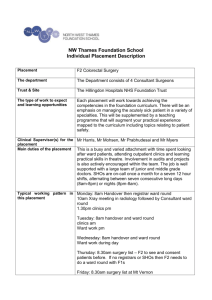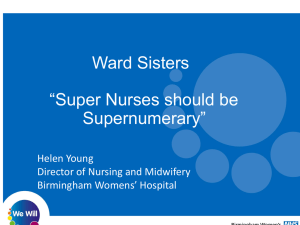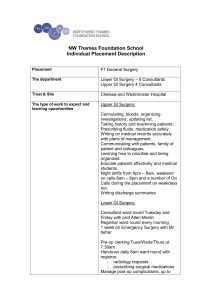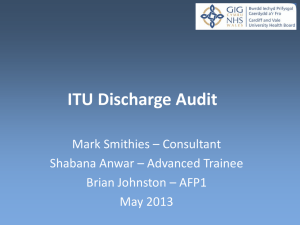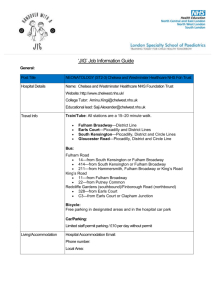Board Bulletin - London School of Paediatrics
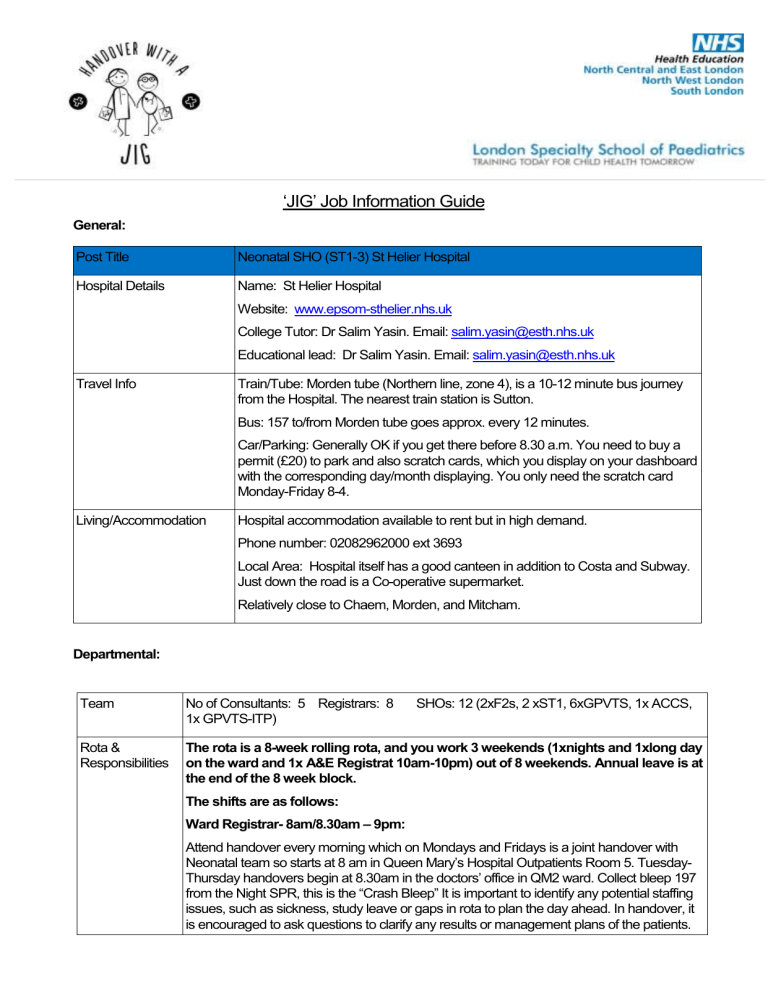
‘JIG’ Job Information Guide
General:
Post Title
Hospital Details
Neonatal SHO (ST1-3) St Helier Hospital
Name: St Helier Hospital
Website: www.epsom-sthelier.nhs.uk
College Tutor: Dr Salim Yasin. Email: salim.yasin@esth.nhs.uk
Educational lead: Dr Salim Yasin. Email: salim.yasin@esth.nhs.uk
Travel Info
Living/Accommodation
Train/Tube: Morden tube (Northern line, zone 4), is a 10-12 minute bus journey from the Hospital. The nearest train station is Sutton.
Bus: 157 to/from Morden tube goes approx. every 12 minutes.
Car/Parking: Generally OK if you get there before 8.30 a.m. You need to buy a permit (£20) to park and also scratch cards, which you display on your dashboard with the corresponding day/month displaying. You only need the scratch card
Monday-Friday 8-4.
Hospital accommodation available to rent but in high demand.
Phone number: 02082962000 ext 3693
Local Area: Hospital itself has a good canteen in addition to Costa and Subway.
Just down the road is a Co-operative supermarket.
Relatively close to Chaem, Morden, and Mitcham.
Departmental:
Team No of Consultants: 5 Registrars: 8 SHOs: 12 (2xF2s, 2 xST1, 6xGPVTS, 1x ACCS,
1x GPVTS-ITP)
Rota &
Responsibilities
The rota is a 8-week rolling rota, and you work 3 weekends (1xnights and 1xlong day on the ward and 1x A&E Registrat 10am-10pm) out of 8 weekends. Annual leave is at the end of the 8 week block.
The shifts are as follows:
Ward Registrar- 8am/8.30am – 9pm:
Attend handover every morning which on Mondays and Fridays is a joint handover with
Neonatal team so starts at 8 am in Queen Mary’s Hospital Outpatients Room 5. Tuesday-
Thursday handovers begin at 8.30am in the doctors ’ office in QM2 ward. Collect bleep 197 from the Night SPR, this is the “Crash Bleep” It is important to identify any potential staffing issues, such as sickness, study leave or gaps in rota to plan the day ahead. In handover, it is encouraged to ask questions to clarify any results or management plans of the patients.
Any notes taken should be written in the ward diary book only, not on individual handover sheets. Following handover, the ward round begins on QM2 ward which is Consultant lead
Monday, Wednesday, Fridays and Registrar lead on Tuesdays and Thursdays. It is important to organise the ward round efficiently and identify sick patients. The ward round provides good opportunity for mini-Cex, Leader assessments. The Consultants encourage the registrars to take the lead in the ward round and to make management plans. There is a
Paediatric Grand Round at 12.30pm every Monday in Childrens’ Outpatients Dept where the SHOs/SPRs can present the ward patients to all the Consultants. This is a good learning opportunity to gain expertise from all the various consultants. The rest of the day is spent organising ward jobs generated from ward round, reviewing the patients, delegating responsibilities between the junior staff on the ward and also reviewing patients who are being admitted from the Paediatric A and E. It is important to keep up to date with activities on the ward and report any changes to the Consultant if appropriate. There are many safeguarding/strategy/discharge planning meetings held for inpatients on Paediatric Ward whom have complex medical/ psychiatry/safeguarding/social concerns. It is necessary that a doctor is present at these meetings, preferably the SPR, however SHOs can also attend.
Handover to the Night SPR on QM2 Ward at 20.30hrs. It is important to facilitate an efficient handover using “SBAR” system. The Night SPR then holds bleep 197.
Night Registrar -8.30pm-9.00am
Handover begins at 8.30pm on QM2 ward doctor
’s office. You collect bleep 197 from the day ward SPR and hold this all night. Following handover, it is important to review any new patients whom have not had SPR review or any potential sick patients. It is also important to ascertain how many beds and cubicles are available, as you will be the point of call for any outside referrals and managing the bed situation.
Following this, you should go to Paediatric A and E. St Helier’s Accident and Emergency is run by the Paediatric team, therefore every patient is seen by Paediatrics including minor injuries, trauma and surgical. On arrival to A and E, check with the Sister in charge about the number of patients waiting, current waiting time, staffing levels and any sick patients. If there is a long wait and you feel that additional help may be required, you can discuss with NNU
SPR whether either themselves or NNU SHO can help in A and E. You also take handover from the Paediatric SPR in who has been on A and E day shift. All patients under age of 1 year require Paediatric SPR review. You will see a lot of different presentations from minor injuries to complex medical conditions and safeguarding concerns. If there are any safeguarding concerns of any child in department they need to be discussed with you and the relevant action can be taken.
A&E Shifts
There are different A&E shifts in the timetable from 9am- 5pm shift, 10am-4pm and weekend long day 10am-10pm shifts. The responsibilities are as above. With all admissions to the paediatric ward or the paediatric assessment unit, it is important to handover to the ward or assessment unit doctor.
Clinics
There are three Paediatric Registrar Fast Track Clinics every week. There is a named consultant for each clinic. It’s a good idea to go to outpatients either the day before or morning of the clinic to do some preparation as almost anything can be referred. If there are any immediate concerns with the patient you can discuss with any of the consultants in outpatients or on the ward. Try and discuss the patients with the named consultant as soon as possible to ensure you can dictate letters as soon as possible. Dictaphones are available from the “PODs” secretaries on the 1 st floor of Queen Mary’s. Once the letters have been typed up, the secretaries email you to notify that they are on clinical manager for your correction. Changes are quite straightforward to make and once you have made any changes they can be printed and signed. Make sure you do letters as soon as possible.
Also on the RSM Study Days, all clinics get cancelled.
Departmental strengths
Training opportunities
Teaching
Top tips
Consultants very approachable
Being a Paediatric run A and E, it gives opportunity to expand on a wide variety of presentations and pathology. Xray interpreting skills in particular is an area which can be developed quickly.
There are a mixture of SHO trainees from F2s, Gp trainees, Paediatric trainees so there are plenty opportunity to mentor and teach trainees whom have different learning objectives
Nurses are excellent
There are several simulation scenarios run by the Consultants in both
Neonatal and A and E settings
Plenty of opportunities to get involved in medical student teaching
Attend specialist clinics from visiting hospitals such as Respiratory,
Surgical, Cardiology clinics
Wednesdays 12.30-1.30pm- Journal club/ START assessment sessions. This is an excellent lunchtime meeting where there is a different presentation every week by Consultants/ SPRs which is geared towards the
START assessment. It is focused on SPRs although SHOs may attend.
Thursday 14:00-15:00 – SPR teaching in the Postgraduate Centre.
Normally consultant teaching on a particular topic
There is a monthly Xray meeting held on Tuesday lunchtime where interesting imaging/cases can be discussed.
In addition, the consultants are generally very keen to teach particularly on ward round. It is important to ask questions and take every opportunity to learn.
Keep on top of A and E and manage the department when you are on that shift. It’s a very busy department but try to know what is happening at all times. It’s important to avoid breeches but in a busy department it’s important to ensure children are assessed and treated safely.
Be enthusiastic on shifts and take opportunity to learn from the consultants, as they are always happy to teach and give feedback
Trust Rep contact details:
Neonates ST1-3; Emily Northern.
Neonates ST4-5; Isabel Mawson.
Paediatrics ST1-3; Ghaya Balendran.
Paediatrics ST4-5; Sharon Jheeta

